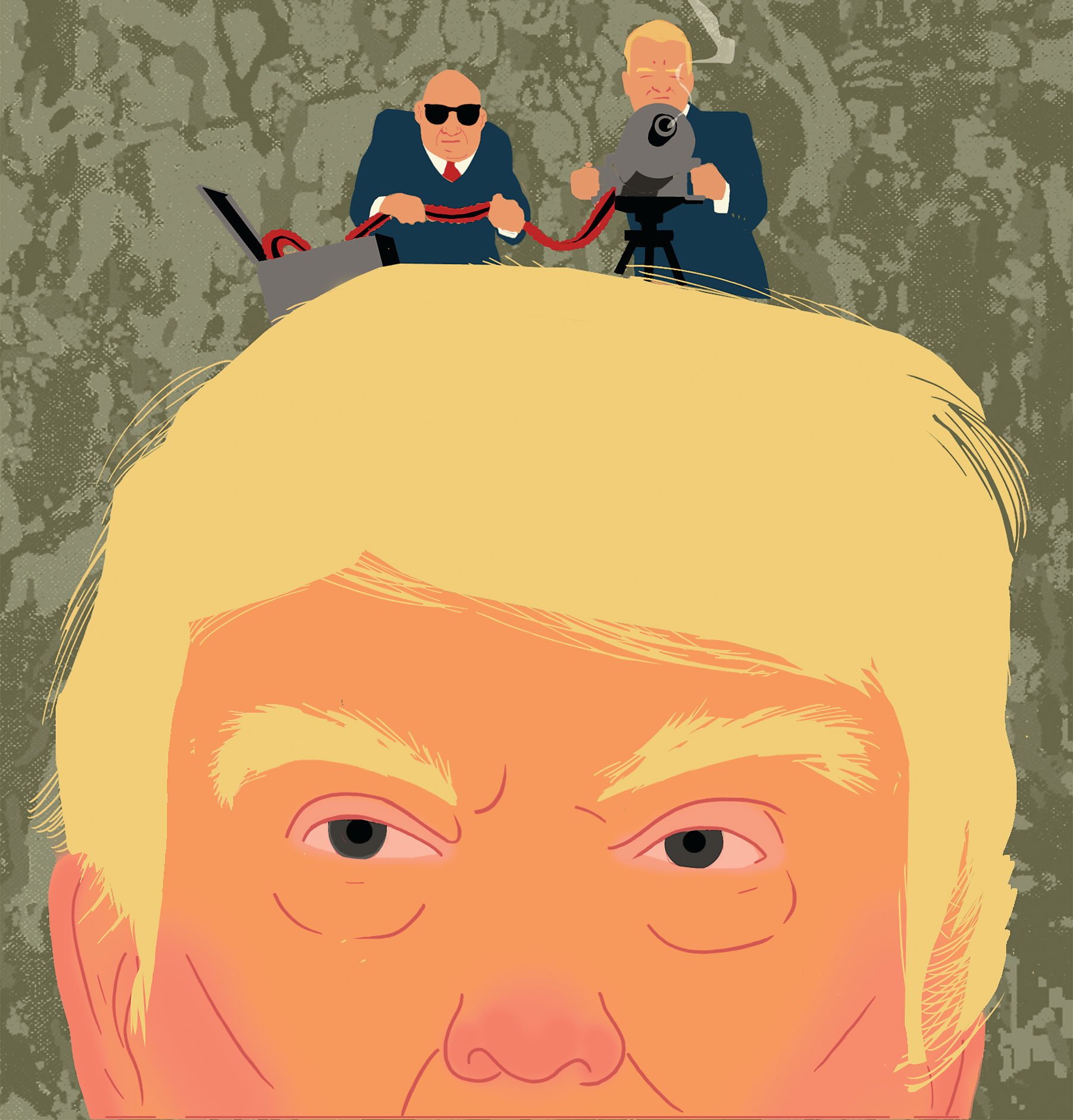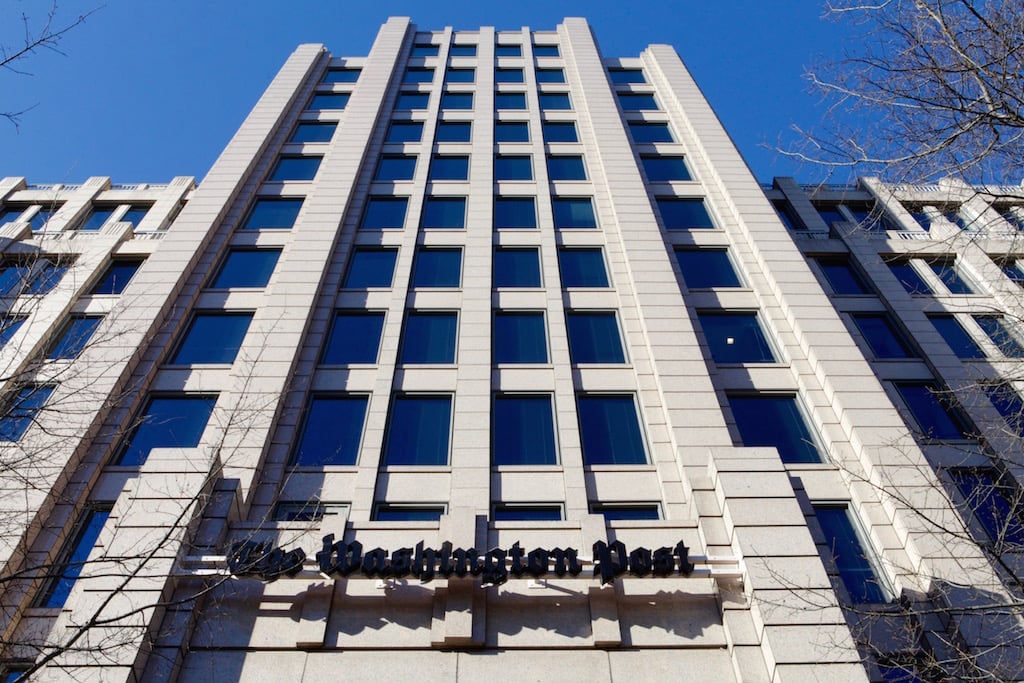In November, a week after the election, a strange bit of news appeared on the website of the Hill, the venerable Capitol Hill newspaper that has more recently evolved into a quick-trigger internet-traffic powerhouse: According to what reporter Joe Concha called an “exclusive statement” from Breitbart News, the Trump-friendly outlet was “preparing a lawsuit against a ‘major media company’ over claims that it is a white nationalist website.”
Before long, the story got picked up by New York magazine, the Associated Press, and even Breitbart, which aggregated Concha’s story. What didn’t appear, however, was a lawsuit. Or, for that matter, any clarity about just who would be sued. When I contacted Breitbart—which was led until last summer by newly ensconced chief White House strategist Steve Bannon—for a status update, no one responded.
It’s tempting to dismiss the “exclusive” as so much more bluster at the end of a circus-style campaign season. Lawsuits, after all, are the kind of thing that happens when scandal sheets cover the private lives of celebrities. In Washington, where reporters’ work focuses on public affairs, the Constitution—and the rules of political PR—tend to put a damper on legal saber-rattling.
Yet we’re in a moment when the old rules seem no longer to apply. Even if it’s not true, the story of the would-be lawsuit—just lingering out there, waiting to be filed—is a good metaphor for the sense of ambient dread that pervades a lot of the Washington media these days.
It’s been that kind of year. Beyond journalism, a sense of intimidation has inched into the DC area’s physical space. Weirdos from the so-called alt-right bombarded the Clarendon Ballroom with phone calls and nasty Yelp reviews after the venue declined to host an inauguration event called the Deploraball. Others have suggested forming Right Wing Safety Squads to harass local group houses that host punk bands, under the theory that such places are “open hotbeds of liberal radicalism.” Most famously, police say the crackpot theory that the DC pizza restaurant Comet Ping Pong was a front for a child-pornography ring inspired a man armed with a rifle to conduct a unilateral investigation there while patrons ate with their families.
Journalists are increasingly part of this story rather than just covering it: A writer who profiles Melania Trump receives death threats via e-mail and phone. A Donald Trump fan publishes the home addresses of Huffington Post, New York Times, and Washington Post staffers, facetiously suggesting that no one bother them. Trump himself complains about individual reporters on Twitter, threatens to go after the business interests of the Post’s owner, threatens to sue the New York Times for reporting on women who said he had harassed them.
That lawsuit, too, has yet to appear, but his legal team’s message to more skittish publishers—Times lawyer David McCraw dared Trump to argue in court that its reporting had damaged his reputation—was clear: Write about our guy and you might have to face expensive litigation.
So far, the ambience hasn’t had a chilling effect on coverage. The Post and the Times continue to cover Trump aggressively and have staffed up for far more than his first 100 days. Even the unspecific Breitbart threat didn’t seem to have impeded a large number of news outlets—presumably all of them potential defendants—from continuing to use the term that had flustered it so. According to the news database Nexis, there were many more mentions of Breitbart and “white nationalist” the week after the Hill’s story.
But it’s a good bet some of their newsroom bosses are still at least a wee bit nervous. Legal proceedings—especially those bankrolled by someone with a grudge—can quickly turn into an existential threat. Just look at Gawker Media, which was nuked by a vengeful billionaire named Peter Thiel. Angry that a Gawker-owned publication had outed him years before, Thiel secretly bankrolled Hulk Hogan’s suit over a Gawker report about a recording of the pro wrestler having sex. The services Thiel provided to Hogan—whom Thiel described as a mere “single-digit millionaire” who needed his help—included careful venue shopping as well as a sympathetic judge and jury, all of which yielded a judgment for $140 million, many times what the average zero-digit millionaire would be likely to get in a wrongful-death case. Hogan later settled for just $31 million—double digits at last!—and Gawker went out of business.
Could it happen to folks in the business of covering politics and policy? Past legal threats by Beltway VIPs tended to vanish. But plenty of other rules of engagement have changed since the rise of Trump. It’s good for the Republic that the Post and the Times can afford most legal tabs as well as the worry that smaller publications might have to weigh those costs before reporting aggressively.
I tried to get comment from the Hill before filing this article last December for our February print issue, but no one replied. On December 22 the Hill ran a story by Concha about how Breitbart’s lawsuit hadn’t appeared yet and summarized some of the debate its original article had inspired. The Breitbart suit is still MIA: Thus far, the only lawsuit I’ve been able to find involving the publication is the 2011 suit that arose after the publication slimed former Agriculture Department official Shirley Sherrod, which the estate of founder Andrew Breitbart settled. Breitbart News hasn’t mentioned her name since. It seems that actually bringing a suit into court is an excellent way to silence a bully.
The last paragraph of this article has been updated with a reference to the Hill’s December 22 story; the original appeared in the February 2017 issue of Washingtonian.




















